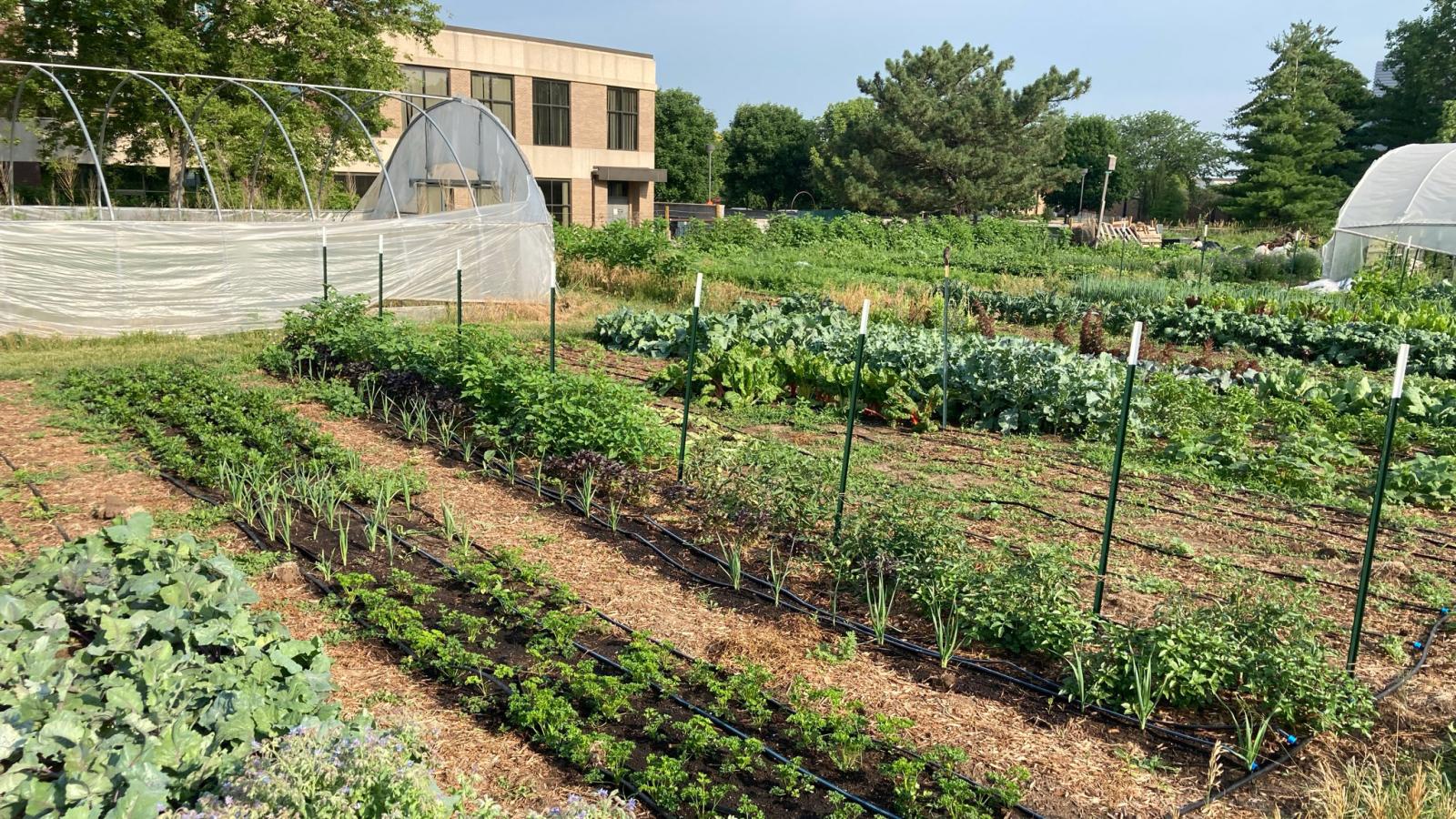A partnership between the University of Nebraska–Lincoln, USDA Natural Resources Conservation Service, and gardeners throughout Nebraska.

The Nebraska Urban Soil Health Initiative is a citizen science project for urban farmers and gardeners throughout the state. The soil health and regenerative agriculture movement is gaining momentum on corn, soybean, and wheat acres across the state, but soil health management practices like cover crops and no-till are less common in urban gardens.
There are more than 30 million households in the U.S. engaged in vegetable production, and our goal is to increase awareness among these backyard farmers about soil health and the related resources and programs available through the USDA Natural Resources Conservation Service (NRCS). To achieve this goal, we are recruiting at least 200 urban farmers and gardeners in Nebraska to implement new soil health management practices including cover crops, no-till, and soil amendment with compost and biochar.
Participating citizen-scientist gardeners will collect plant and soil data to learn about the benefits of soil health management practices firsthand and provide UNL with data to evaluate changes in urban soil health over time. Participants will receive a free annual soil health test and supplies to implement a new soil health management practice – up to a $200 value!
Participating gardeners will also enjoy priority access to online educational materials, study results and publications, and outreach events hosted by the NRCS.

Are you interested in participating in the Nebraska Urban Soil Health Initiative?
To be eligible for participation as a citizen scientist, gardeners will:
- Have access to at least 100 sq. ft. of private garden space (approximately the size of a small bedroom) for two consecutive years
- Participate in 2023 and 2024 by:
- Gardening the 100 sq. ft. garden space and implementing an assigned soil health management practice that includes cover crops, no-till, compost, and/or biochar
- Collecting soil samples and mailing to UNL (at no cost to the participant)
- Collecting data and observations about how garden plants, soil, and insects are responding to soil health management practices and submitting the data through the project webpage
If you are interested and eligible to participate, please email Sam Wortman (swortman@unl.edu) for more information.




Funding for the Nebraska Urban Soil Health Initiative is provided through a Conservation Collaboration Agreement with the USDA Natural Resources Conservation Service in Nebraska (USDA-NRCS-NE-CCA-22-NOFO0001184).
USDA is an equal opportunity provider, employer, and lender.

For More Information
Contact Sam Wortman, Associate Professor and Environmental Horticulturist, at swortman@unl.edu
